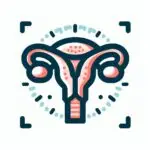In-Vitro Fertilisation (IVF)
Talk to our leading fertility doctor
Speak to us about in person video phone consultations
In-Vitro Fertilisation
In-Vitro Fertilisation, commonly referred to as IVF, is a medical procedure that has helped millions worldwide overcome infertility and fulfill their dreams of starting a family. This assisted reproductive technology involves a complex series of steps to fertilise an egg with sperm outside the body, before implanting the embryo into the uterus.
The IVF Procedure
1. Ovarian Stimulation: The IVF process typically starts with controlled ovarian stimulation (COS) using hormonal medications. The goal is to stimulate the ovaries to produce multiple mature eggs.
2. Egg Retrieval: Once the eggs have matured, a minor surgical procedure called transvaginal oocyte retrieval is performed. A thin needle is used to extract the eggs from the ovaries.
3. Sperm Collection: Meanwhile, sperm is prepared from the male partner or from a sperm donor.
4. Fertilisation: The eggs and sperm are combined in a laboratory dish, where fertilisation occurs. This can be done through conventional insemination or intracytoplasmic sperm injection (ICSI), depending on the circumstances.
5. Embryo Culture: The resulting embryos are cultured and monitored for several days to assess their development and quality.
6. Embryo Transfer: One or more healthy embryos are selected for transfer into the uterus, typically on day 4 or day 5 post-fertilisation.
7. Luteal Phase Support: Hormonal medications are often prescribed to support the uterine lining and enhance the chances of embryo implantation.
Success Rates
IVF success rates vary depending on various factors, including the woman’s age, the cause of infertility, and the clinic’s expertise. On average, the success rate per cycle ranges from 30% to 40%, with higher success rates for younger women. It is essential to understand that IVF may require multiple cycles to achieve a successful pregnancy.
In-Vitro Fertilization has transformed the landscape of reproductive medicine, offering hope to countless individuals and couples facing fertility challenges. While it is a highly effective and widely accepted treatment, IVF is not without its complexities. Understanding the procedure and its success rates is crucial for anyone considering or undergoing IVF treatment.
Dr Elgey and team have a proven track record in managing and performing IVF procedures. With success rates above industry standards we strive to help you achieve the best outcomes.
Frequently Asked Questions
Potential risks and side effects associated with IVF procedures include:
- An exaggeration of usual menstrual cycle symptoms (e.g. bloating, breast tenderness, mood swings) because the ovaries have been stimulated to produce more than one follicle.
- In about 1% of cases, Ovarian Hyperstimulation Syndrome (OHSS) develops. The ovaries become extremely enlarged and extra fluid accumulates in the abdomen. This complication requires rest, close monitoring, intravenous fluids or even drainage of the abdominal fluid. In rare cases, if we feel you are at a high risk for developing OHSS, the embryos may be frozen rather than replaced.
- If more than one embryo is transferred into the uterus, a multiple pregnancy may occur. Multiple pregnancies carry a higher risk of preterm delivery and other associated problems. Twins can occur in 10-20% of cases. Identical twinning is a potential outcome too so we suggest a careful discussion with your partner and your clinician if you plan to transfer more than one embryo.
- Fertility drugs have not been proven to increase the risk of breast, ovarian or uterine cancer. However, women who have never been pregnant have a higher risk of breast or ovarian cancer. Past or future use of the birth control pill will lower your risk of ovarian cancer. A yearly physical exam is important for the prevention and early detection of all diseases.
Most IVF cycles will take 12 to 14 days from your period to egg retrieval and then another 4 to 5 days to embryo transfer
Maintaining a healthy diet, regular exercise, and avoiding smoking and excessive alcohol can contribute to better IVF outcomes.
IVF has lower success rates as a woman ages, with pregnancy using a woman’s own eggs unlikely over 44 years old
Gender selection for non-medical reasons is not legal within Australian IVF clinics. Embryos created overseas and selected for gender may not be able to brought into Australia
In certain circumstances it may be possible to exclude embryos that carry certain genetic conditions. This requires the advice of a clinical geneticist before undertaking IVF
I would like to know more about
Why you should choose to see us

Personalised
Care
A team that knows you’re not just a number

Science and Results
Working with alternative options

Telehealth
Options
Video or mobile for your convennience








